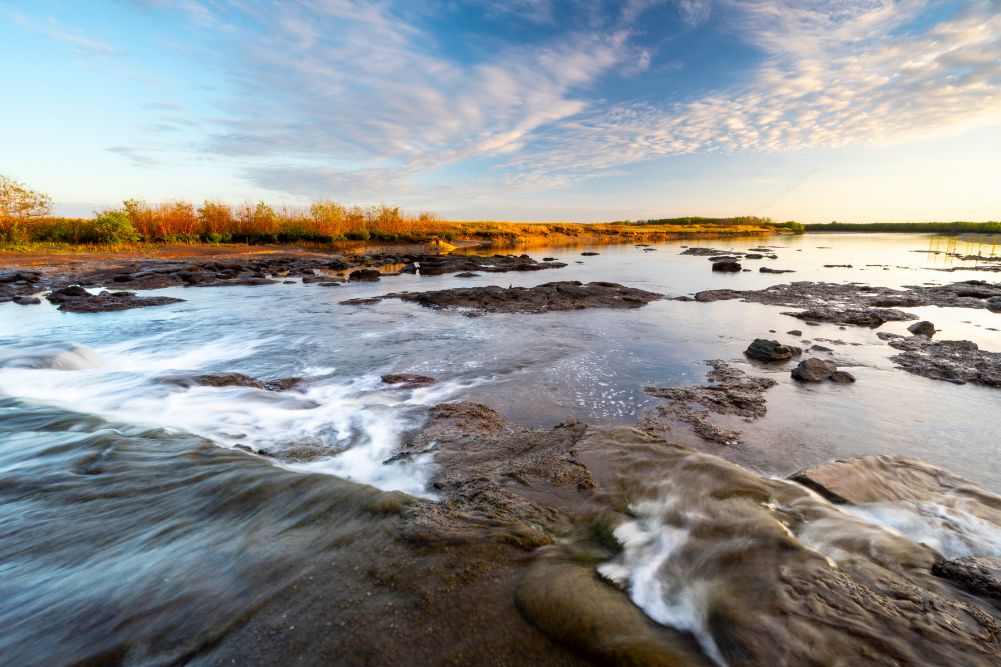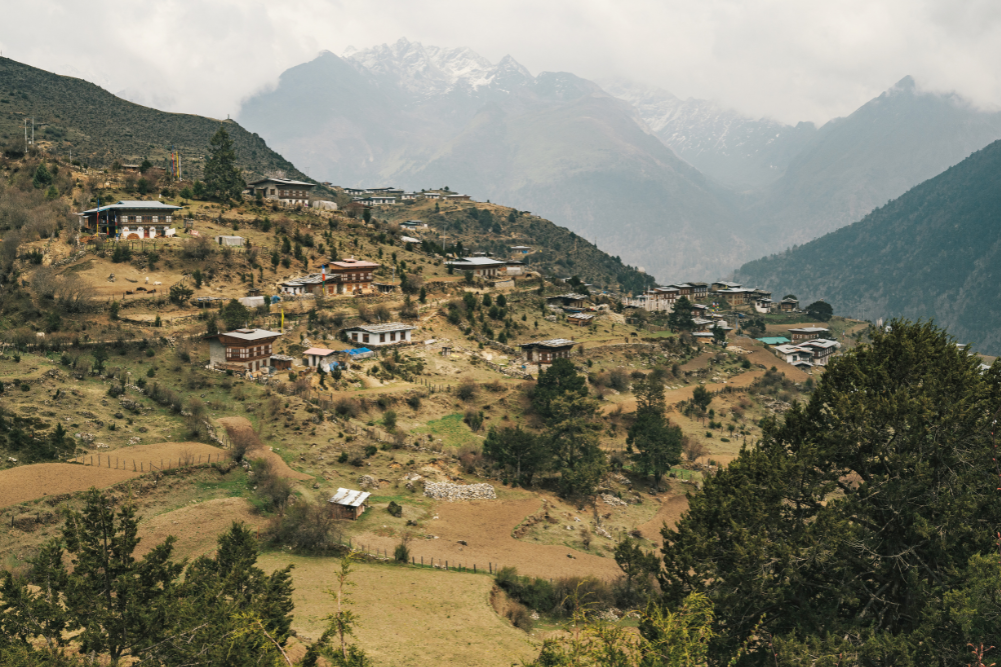Helping children in a Thai orphanage
When I headed off to Thailand to volunteer at a Buddhist orphanage seven years ago, little did I know how much it would change my life. I thought I was going to change the world; I just didn’t realise that the greatest changes would occur within my own heart, mind and soul. For me, it was a love affair that began with a case of mistaken identity. In 2001, I was working as a busy writer and editor within Sydney’s custom publishing world. I enjoyed working with clients and the written word, and was earning a good income for my efforts.
I was young — just 27 — and had not yet tied myself to any heavy responsibilities, so it seemed like a good time to explore the exotic realms of South East Asia and fulfil a long-held desire to volunteer at an abandoned babies’ home.
For as long as I can remember, I have dreamt of working in an orphanage. My favourite books as a child all featured lovable orphans. Anne of Green Gables and Annie were on high rotation on my video player. The thought of caring for a gaggle of babies and children who had been abandoned was, quite simply, my kind of bliss.
Working with a wonderful life coach, I achieved the goal of getting on the plane within about three months. It might have taken me three years or more if left to my own devices — there would always be another gig, another deadline, or another excuse to keep me in the safety of the known world.
I could no longer bear to hear myself continually talking about an ambition I’d get around to “one day”, so in March 2001 I booked a two-week reconnaissance mission to Thailand. In searing 40-degree heat, I hopped in and out of tuk-tuks in Bangkok and the northern city of Chiang Mai, visiting the list of orphanages I had compiled from my search on the internet. After a depressing week of doors closing in my face — this orphanage didn’t want foreign help, that orphanage only wanted volunteer doctors and nurses, another place was religious — I was starting to think maybe this wasn’t meant to be.
Resigned to heading back to Australia, I set out on the second-last day of my trip to deliver some medicine and toiletries I had purchased for the children at the Christian orphanage in Chiang Mai. I had asked Coin, the receptionist at the hostel where I was staying, to write out the address in Thai, knowing that my comic sign language wouldn’t cut it with the local tuk-tuk drivers.
Despite her handwritten directions, 15 minutes later, the driver pulled into the driveway of an unfamiliar building.
“You’ve brought me to the wrong place,” I complained. “Go in, go in,” insisted the driver. “But it’s not where I’m meant to be,” I replied. “Just go in,” he said.
Within minutes I realised the “wrong” place was most definitely the right place for me. Sweet-smelling babies in white terry cloth romper suits reached out from their cots to be hugged. Serene-looking nannies in lilac uniforms welcomed me into their domain. It felt clean, simple, loving, peaceful. I knew without a doubt that this was where I wanted to be, needed to be. You might call it dharma, divine intervention or simply a language breakdown that made Coin translate the name of the Ban Kingkaew orphanage in place of the name I had handed her. All I know is I am eternally grateful for her error.
Ban Kingkaew is a Buddhist orphanage that opened in 1966, thanks to the generosity of local resident Miss Kingkaew Wiboolsanti who bequeathed her home, land and a sum of money in her will for the purpose of creating a foundation for babies and young children in need. These days, the orphanage also receives financial support from various government welfare departments as well as gifts and bequests from numerous private donors. A team of dedicated Thai female nannies, nurses and teachers are employed to care for the children under the spiritual supervision of two Buddhist nuns who live at the home.
For two years I volunteered there, helping to care for up to 60 children who had been abandoned, removed from their parents or placed in care while their parents served jail terms. I met children whose parents were sentenced to 20 years or more in prison. If the parents were unwilling to relinquish their parental rights, which would make the kids available for adoption, they would remain in institutionalised care until legally adults.
Ban Kingkaew has a capacity for up to 60 children and babies — at the time of writing, there were about 50 — aged from one month to six years old.
“We cannot receive the babies from Ban Viengping before the age of one month because we don’t know yet if the baby is healthy,” explains Srisawat Suwan, the dynamic and capable 36-year-old administrator who oversees the paperwork of all her charges. She also sends homemade birthday and Christmas cards to every single child who has passed through her care in the 14 years she has been employed by Ban Kingkaew.
“If the police find an abandoned baby in the streets, they will take them straight to hospital for a check-up. The next step is to have an announcement in the newspaper and radio to see if anyone will claim this baby. If no one does, they go to Ban Viengping after one month and then they are brought here to us where they can stay until the age of six if they are not adopted.”
When the children turn six, they are transferred to a larger institution with a capacity for over 200 children. Here they will receive basic schooling and care until they are reunited with their parents or fostered out to a local family (this is uncommon, as Thai people in general are disinclined to foster or adopt non-related children) — or leave freely as independent young adults at the ripe old age of 16.
The reasons the children end up in institutionalised care are many and varied. Each story seems sadder than the next. Some are abandoned on the streets by desperate, young (some as young as 12) or poor mothers. More than half are in care because their mothers are in jail (almost always for trafficking small amounts of methamphetamine pills). The remaining children have been removed from their parents due to neglect or abuse.
“When mothers go to jail, they sometimes don’t understand what will happen to their children and think they are losing them forever,” explains Suwan. “They cry and cry. We try to explain it’s good for children — they’ll be safe, well fed, have playmates.
“Often, when we get the children they have so many problems, like scabies, infections, bad behaviour. It takes a long time for the children to improve.” But improve they do.
People often ask me if it’s a terribly sad place and I can honestly tell them it’s one of the most uplifting and healthy environments I’ve ever seen. The children are, without exception, kept clean, well fed and nurtured by their many “mothers” — the nannies, teachers and nurses — while they form incredibly close bonds with their brothers and sisters of circumstance. They’re not spoiled or overly pampered but they do receive just about everything they need, apart from the love of their very own parent figures. There’s a rhythm and routine to their days — breakfast at 7am, midday nap, playtime in the afternoon and lights out at 8pm — that does wonders for the children who have been raised in chaos and uncertainty. Most of the Ban Kingkaew children are more confident, compassionate and adaptable than many kids I meet in Australia. In my humble opinion, overindulging children is a sure-fire ticket to problems later in life.
The most common questions I am asked about my time at the orphanage are: how can you leave the kids when you come home; what did you actually do there; and are they able to be adopted?
The answer to the first question is that it’s something I have slowly adapted to. Of course you form unbelievably close attachments with the children and leaving them feels like leaving behind your right arm. The first time I flew home from Thailand after a long stint there I cried all the way from Chiang Mai to Sydney then mooched around feeling miserable for several months: not much use to myself, the kids or anyone else around me.
I take a more pragmatic approach these days and have learned to have my “Thailand hat” on in that country and my “Australia hat” on at other times. This enables me to be fully present, useful and loving with the children when I am there and to let go and trust they will be well cared for by the nannies in my absence. What a relief not to have to try to carry the universe on my shoulders! Children are incredibly resilient and naturally gifted at staying in the moment. They have taught me a lot about living in neither regret nor anticipation.
What did I do there? Blessedly, I didn’t have to “do” much at all. It’s the only job I’ve ever worked at where I was more than happy to do it for free. Little was asked of me but that only made me want to give more. Although my friends and I did hold a successful fundraiser in Sydney (thanks to the generosity of media and travel industry colleagues) that helped us to donate a new building to expand the orphanage’s facilities, I believe the most important thing any of us can do is simply be present with children. Brushing the little girls’ hair after bathtime and singing songs with the boys showed them they were treasured, valuable and loved. They might forget a lot of the details but I believe they will remember the feeling.
As for the last question, the whole area of adoption is a little foggy: in Thailand, if you ask three people’s advice on this you will be given five different answers. What I do know is that on average, between five and 10 children from Ban Kingkaew will find homes in Australia, New Zealand, Canada and Europe each year. It’s a special privilege to meet the new parents on their journeys to collect sons and daughters they have dreamed about for years.
I do know that anyone in Australia who wishes to adopt must go through the correct channels and first approach the Department of Community Services for guidance. Although I met many desperate people who fronted up at the orphanage hoping to be given a baby, this is never allowed. In fact, private arrangements such as this are illegal in Australia and result in the adopted child being refused an entry visa to Australia.
I have been heartened to see actress Deborra-Lee Furness (herself a mother of two adopted children) in the papers raising awareness of the difficulties faced by adopting parents. It is her belief, and mine, that the process to adopt a child should take no longer than nine months, the same time it takes to biologically produce a baby.
Since that first two-year stint at Ban Kingkaew, I have seen many changes in my own life. I moved back to Sydney and took on a magazine editing role. During the heady, exciting and often stressful hours in the office I would think back to the simple days of sunshine and playtime and look forward to the four weeks every year I committed to going back to Thailand. It filled my tank for the year ahead.
As much as things may change within my circle — friends marrying or divorcing, parents passing away, children born, overseas moves — the orphanage has remained a sacred constant and I hope it will continue to be my North Star for many years to come. Mae Ma, one of the Buddhist nuns who has dedicated her life to the children, told me on my last visit, “Don’t worry, Kristie, we will always be here and you will always be welcome.”







